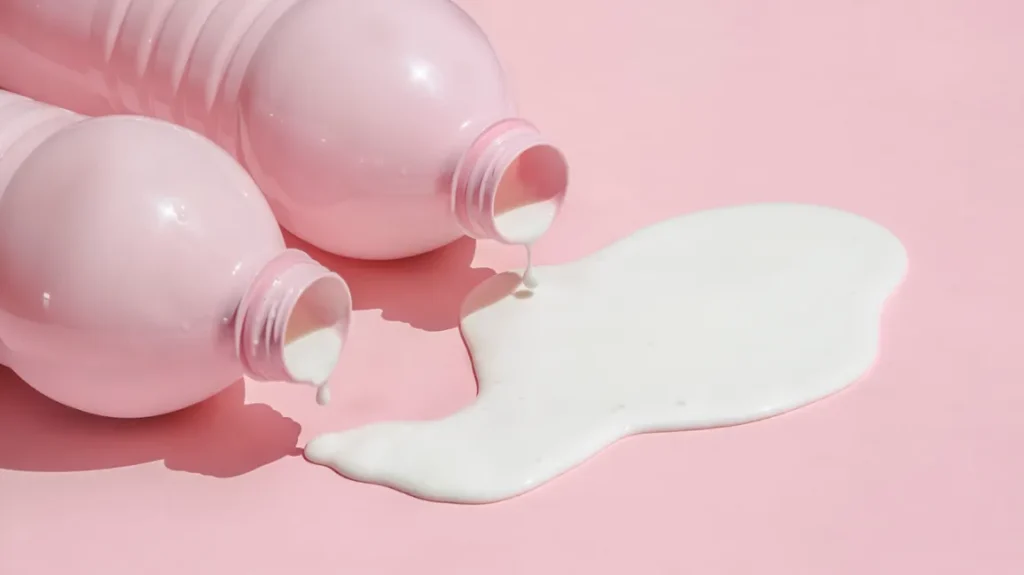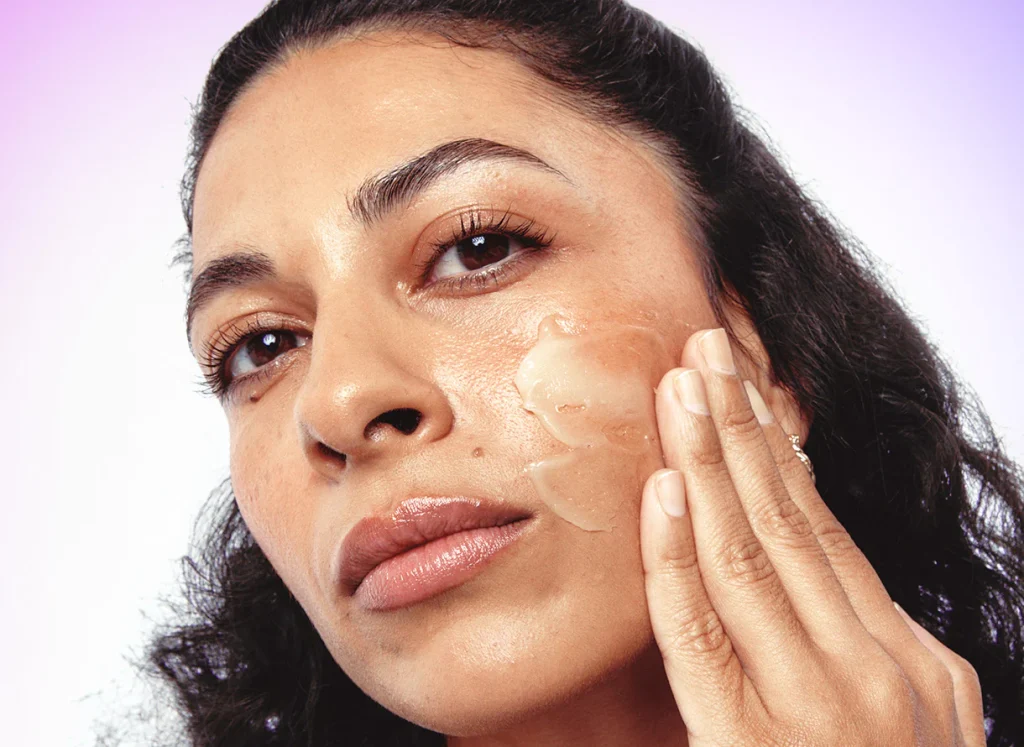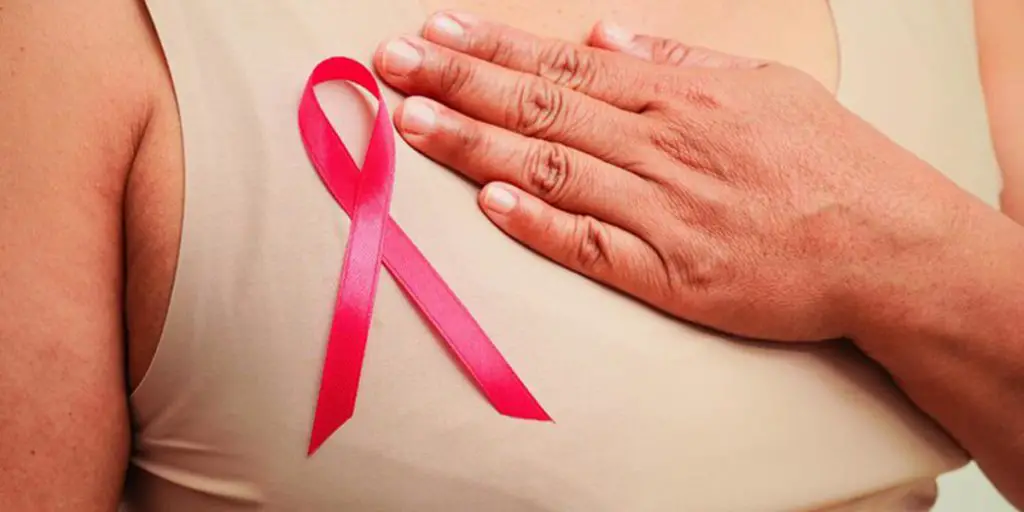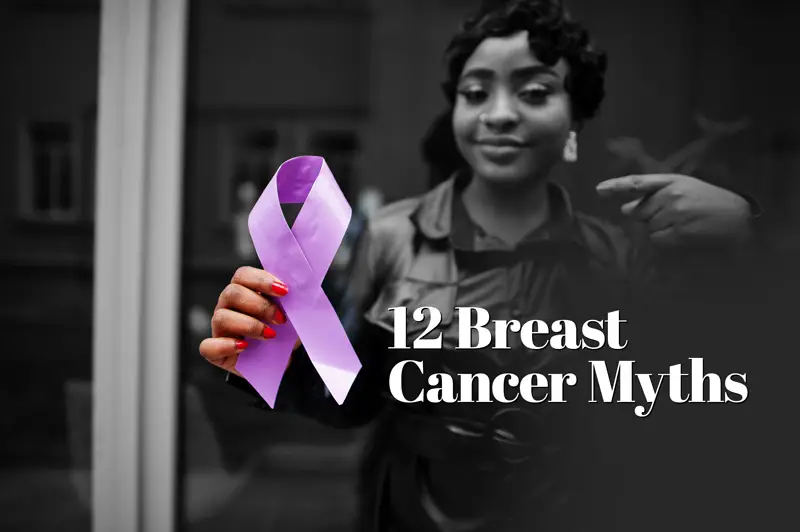Breast cancer is the most common cancer affecting women globally, with an estimated 2.3 million new cases diagnosed each year [source: As there is no sole HIRA associated with the World Health Organization]. We should use our resources for detecting and treating the disease in the early stages, as it will increase the odds for success. While the knowledge about breast cancer has acquired tremendous breakthroughs, there is still lack of understanding and widespread misconceptions about this disease that lead to fear, confusion and sometimes don’t allow timely screenings.
This article explains how and where the most popular breast cancer myths are spread, resulting in their persistence and further propagation. One way of doing this is by shedding light on these myths and thus dispel these misconceptions, we can help boost people’s capabilities to redefine their health and make better decisions. We’ll take a look on what things can put you in danger and what are the signs of the disease, with daily screenings playing a central role. Type of breathless topic our class need is learning of the breast cancer facts.
Myth 1: It is not men who get breast cancer, rather it is women who die from this.
However, first of all, despite of the fact that breast cancer is most likely to diagnosed in women, men also are not entirely immune to it. Men unlike women grant that are breast carriers of, but still there is such a rare male breast cancer that can exist. Knowing that this could be a possibility and reporting any unusual texture to a doctor immediately it would quality immediately.
Myth 2: For me it is either a family history of breast cancer or a Geiger counter which will catch the disease.
For a close family member to have breast cancer will raise your risk but it does not tell if you will be breast cancer patient. Genealogy is a serious risk contributing other factors, such as age and life style. Genetic mutations such as BRCA1 and BRCA2 seen in only a few breast
Myth 3: Once I do no longer feel like the
A lump in a breast is one of the most indicated symptoms of breast cancer, but not the only. Be aware of other changes that might indicate a problem, such as:Be aware of other changes that might indicate a problem, such as:
- Dual or pouting characteristic of the breast skin.
- Nipple retract (charuvaa mukhiyula)
- Smel (a fluid coming out from the nipple);
- Growing or shrinking breasts shapes cause a bigger gap in their love for themselves.
- Skin breasts in red or scaling.

If you have some symptoms written down it is very crucial for you to visit a doctor for a medical evaluation. Self-examinations and mammography could be additionally used for early detection of tumors even if they do not sting.
Myth 4: Chances to have an injury grows with a underwire bra on.
There is no data at all that even suggests wearing an underwire bra can make you shouldn your breast cancer by any means. Contrarily, a bra that doesn’t suit does nothing but highten discomfort and cause irritation. Tee up a bra that is nicely tailored and prevents the breasts from sagging, at same does not hinder movement.
Myth 5: Indurant is seen to congest the lymph nodus from time to time and makes cancer.
Deodorant not only does not stop lymph nodes from draining, but being fresh with deodorant has never caused breast cancer. The lymph nodes are immunological organs that enable the body to maintain homeostasis and fin anti an infection. Exactly speaking, deodorants act in the reduction of excess perspiration and bacteria found on the body which are the main causes of bad odor. Whilst the deodorants are not a reason for breast cancer, containment of aluminum cannot be ruled out.
Myth 6: Ammonia-based antiperspirants dry the skin, aggravate eczema, and can cause a variety of other problems.
Personal health and beauty care products are regulated by the Food and Drug Administration (FDA) in the United States. Consumer welfare is guaranteed through their safety and efficiency. Others simply go for the aluminum-free deodorants, yet there is no study which shows any safety problem with standard antiperspirants containing aluminium. It is about picking the product that best corresponds with your needs and preferences.

Myth 7: Sugar helps cancer feed.
It is exactly this fact that removes the sugar completely from the cancer cells as well as other cells which need it for energy. However, reducing sugar intake to the minimum amount is certainly not the single tool to combat or cure breast cancer. Besides the attendance more of natural food low in processed foods and added sugar enhance our general wellness, this is not a complete screening against the cancer issue.
Myth 8: Breast cancer can be prevented by organic food since the multitude of chemicals found in most commercial products are associated with a higher degree of risk.
While organic foodstuff offers possibility such as the limited exposure to pesticides, the evidence is not unveiled that it has direct preventing effect on breast cancer. First of all based on balanced diet and full of fruits or vegetables or whole grains rather than the type: organic or conventional is important.
Myth 9: While breastfeeding is beneficial with minimum complications, it is not a league without risk.
Through breastfeeding, breast milk is the most ideal and exclusive food for both the mother and the accompanying baby. It is a true savior as far as mothers’ health is concerned; one of the many advantages is a lower chance of developing breast cancers. Breastfeeding has no link with cancer risk, this is a rumor that has no scientific evidence as a ground.
Myth 10: When a mammogram is performed, it can result in a diagnosis of cancer.
The radiation from a mammogram is so miniscule and the benefits of early detection are high with regards to the risk. Thus, mammography has a number of advantages to an individual. The most important tool mammography is known for as a means for detecting breast cancer in its nascent phase, which results in better chances in fighting it.
Myth 11: To my mind, regularly performing breast self-examinations is enough for early tumor discovery.
Although partial exams can help you know your breasts better and notice any inconsistencies, they not something that will replace recurring screenings like mammograms. In terms of precancerous or early stage breast cancers, mammography is able to detect small abnormalities too subtle to be discovered during a self-exam as a palpable mass is about the size of a walnut. SRH SELF-EXAMS and regularly SCANS are of crucial importance to the early diagnosis.

Myth 12: There is nothing to me to bypass the inevitable of being diagnosed with breast cancer.
Even though no method is known to completely block breast cancer from happening, making some changes in your lifestyle can be very helpful in minimizing your risk.These include:
- Maintaining a healthy weight
- Taking the physical details as one can participate in regular physical activities.
- Limiting alcohol consumption
- Avoiding smoking (if applicable)
On the other hand, early detection frequently aids. Getting familiar of the risks and symptoms in this kind of cancer as well as by attending both regular and other screenings that are might be available you can increase the odds of a good outcome in case this cancer happens.Remember, knowledge is power. Don’t be afraid to voice any of your fears or points of concern to your doctor.
Conclusion
It is important to be educated by having the correct information will be very useful whenever breast cancer comes to mind. Since spreading such myth can lead to a barrier in communication and space of people’s opinions, it is vital to reveal the truth about this case. While it is true that many people are afraid in face of what they don’t know, this quite often provokes such hate and misinformation. This article sought to debunk some of common breast cancer myths and clarify the muddied facts to aid your journey in understanding more about protecting your breast health.
A good doctor will always listen to you and give you advice on your health. This is the best part of being a doctor. To this end, early detection and early treatment remain imperative to get good results. Here are some resources for further information:Here are some resources for further information:
- The American Cancer Society: https://www.cancer.org/
- The National Cancer Institute: https://www.cancer.gov/
- Susan G. Komen: https://www.komen.org/
Remember, you are not alone. By taking charge of your health and getting regular screenings, you can play a proactive role in your well-being.


